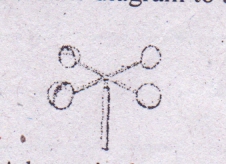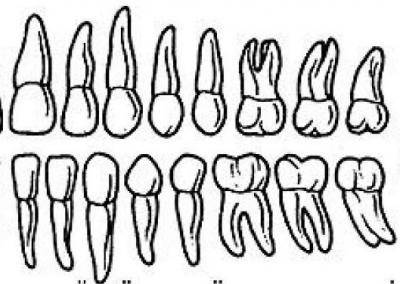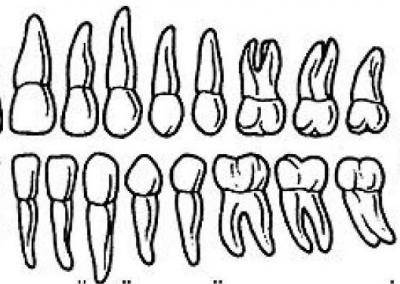
Jamb Past Question for Biology – Have you gotten a copy of the previously asked questions on biology? As a science student, biology is very important to you, especially for those candidates who want to study medicine and surgery and all other science-related courses. If you have chosen biology during jamb registration then you must prepare well so that you can score very high. To further help you, we have the original Jamb Past Question for Biology which you can lay your hands on right now and help yourself. Check the information below to know how to get these past questions directly into your phone now.
We have made the past question very simple, portable, and affordable such that every student can get it or download it as long as they have access to a smartphone.
All those who have Downloaded our Jamb Past Question for Biology have been giving testimonies of how it was helpful to them. We are very sure it is going to help you as well. When you get this past question it will help you to score higher than your competitors and give you an edge over them.
With the proper use of our original Jamb Past Question for Biology, you will pass the jamb examination come out successfully, and gain direct entry admission into the institution of your choice. This past question comes to you through your email address or WhatsApp once you make payments to purchase it. The downloadable format is going to be in softcopy, you can either choose to download it and read it with your Android phone or laptop at your convenience – wherever and whenever.

Jamb Past Question for Biology Pattern
The thing is when you Download Jamb Past Question for Biology, it is in a multiple-choice question pattern. We have made it very easy for you. we bring all the questions for many years and put them together but we indicate the specific years of their occurrence. We provide the correct answers to save you time. All you need to do is devote quality time to study it when you Jamb Past Questions for Biology and watch yourself change the narrative by scoring better than you expected in the examination.
Why You Need Jamb Past Question for Biology
When it comes to JAMB the main essence is to only select eligible and qualified candidates so that candidates can gain admission into their desired school of choice. It is rather unfortunate that a lot of candidates end up writing JAMB exams year in and year out because they could not make it at f But when you Download Jamb Past Question for Biology and prepare by reading and practicing it you will have a sure ticket to getting admission.
- It will expose you to the questions that have been asked years back as most of those questions and answers get repeated every year while some will just be rephrased. So if you don’t have a copy of this last question, then you are losing out.
- It provides useful information about the types of questions to expect and helps you prevent surprises.
- You will be able to detect and answer repeated questions quickly and easily.
- You will be able to find out the number of questions you will see in the exams.
Jamb Past Question for Biology Sample
In other to know that we are giving out the original Jamb Past Question for Biology, we have decided to give you some free samples as proof of what we said earlier.
- A. adaptation
- B. evolution
- C. variation
- D. succession
ANS: A
Explanation
Adaptation is the process by which an animal or plant species becomes fitted to its environment; it is the result of natural selection’s acting upon heritable variation. Even the simpler organisms must be adapted in a great variety of ways: in their structure, physiology, and genetics, in their locomotion or dispersal, in their means of defense and attack, in their reproduction and development, and other respects.
Evolution explains how living things change over a long time, and how they have come to be the way they are
Variation is any difference between cells, individual organisms, or groups of organisms of any species caused either by genetic differences (genotypic variation) or by the effect of environmental factors on the expression of the genetic potentials (phenotypic variation). Variation may be shown in physical appearance, metabolism, fertility, mode of reproduction, behaviour, learning, and mental ability.
Succession is the process by which the structure of a biological community evolves. Two different types of succession—primary and secondary—have been distinguished. Primary succession occurs in essentially lifeless areas—regions in which the soil is incapable of sustaining life as a result of such factors as lava flows, newly formed sand dunes, or rocks left from a retreating glacier.
Secondary succession occurs in areas where a community that previously existed has been removed; it is typified by smaller-scale disturbances that do not eliminate all life and nutrients from the environment.

Use the diagram to answer the question that follows
The instrument is used to measure
- A. atmospheric pressure
- B. relative humidity
- C. direction of wind
- D. speed of wind
Ans: D
Explanation
An Anemometer is a device used for measuring wind speed and direction.
- A. diplobacillus
- B. coccus
- C. bacillus
- D. vibrio
Ans: B
Explanation
A coccus (plural cocci) is any bacterium that has a spherical, ovoid, or generally round shape. A bacillus is any bacterium that has a rod shape.
- A. Fluke
- B. Nematode
- C. Bacteria
- D. Volvox
Ans: A
Explanation
A flame cell is a specialized excretory cell found in the simplest freshwater invertebrates, including flatworms (fluke, planaria)
Excretion of ammonia waste through the body wall, and is not associated with any specific organs
- A. Family
- B. phylum
- C. community
- D. group
Ans: C
Explanation
The food chain refers to the sequence of transfers of matter and energy in the form of food from organism to organism. Food chains intertwine locally into a food web because most organisms consume more than one type of animal or plant. Plants, which convert solar energy to food by photosynthesis, are the primary food source. In a predator chain, a plant-eating animal is eaten by a flesh-eating animal. In a parasite chain, a smaller organism consumes part of a larger host and may itself be parasitized by even smaller organisms.
In a saprophytic chain, microorganisms live on dead organic matter.
- A. cow
- B. pig
- C. sheep
- D. dog
Ans: B
Explanation
It is transmitted to pigs through human feces or contaminated vegetation contaminated with human excreta.

Use the diagram to answer the question that follows.
The dentition is found in
- A. rat
- B. dog
- C. sheep
- D. man
Ans: D
- A. half inferior ovary
- B. superior ovary
- C. inferior ovary
- D. half superior ovary
Ans: B
Explanation
A superior ovary is an ovary attached to the receptacle above the attachment of other floral parts
A half-inferior ovary is embedded or surrounded by the receptacle.
An inferior ovary lies below the attachment of other floral parts.
- A. Holozoic
- B. parasitic
- C. saprophytic
- D. carnivores
Ans: B
Explanation
Parasitic nutrition is heterotrophic nutrition where a parasitic organism lives on the body surface or inside the body of another type of organism (a host) and gets nutrition directly from the body of the host. Since these parasites derive nourishment from their host, this symbiotic interaction is often described as harmful to the host.
Saprotrophic nutrition is a process of chemoheterotrophic extracellular digestion involved in the processing of decayed organic matter.
The organism feeds on dead matter i.e. fungi
A carnivore is an organism that derives its energy and nutrient requirements from a diet consisting mainly or exclusively of animal tissue, whether through predation or scavenging
- A. Volvox
- B. paramecium
- C. euglena
- D. Chlamydomonas
Ans: A
Explanation
Volvox is an example of an organism that forms spherical colonies of up to 50,000 cells.
A colony is composed of two or more individuals living in close association with, or connected to, one another, usually for mutual benefit such as stronger defense or the ability to attack bigger prey.
It is a cluster of identical cells (clones) on the surface of (or within) a solid medium, usually derived from a single parent cell.
- A. size
- B. ability to taste PTC
- C. color
- D. fingerprint
Ans: B
Explanation
Morphological variation includes aspects of the outward appearance i.e. shape, structure, color, pattern, and size which is in contrast to physiology variation which deals primarily with function.
Morphological variation arises from several factors which can be bluntly classified as either genetic or environmental implanted into the process of evolution.
- A. acquired
- B. heritable
- C. sex-linked
- D. morphological
Ans: B
Explanation
PTC(phenylthiocarbamide) has the unusual property that it either tastes very bitter or is virtually tasteless, depending on the genetic makeup of the taster. The ability to taste PTC is often treated as a dominant genetic trait, although inheritance and expression of this trait are somewhat more complex.
To some people, small amounts of the compound phenylthiocarbamide (PTC) taste very bitter; other people do not taste these compounds. The myth is that there are only two kinds of people, tasters, and non-tasters, and that the trait is controlled by a single gene, with the allele for tasting dominant over the allele for non-tasting.
∴ ability to taste PTC in some individuals is a heritable character
- A. coagulation, white blood cell
- B. coagulation, water
- C. white blood cells, red blood cell
- D. coagulation, red blood cell
Ans: D
Explanation
The clumping of cells such as bacteria or red blood cells in the presence of an antibody or complement.
During blood transfusions, the antibodies react with the transfused blood group(if it’s of a different blood group), and the erythrocytes clump up and stick together causing them to agglutinate
- A. Chloroplasts
- B. Ribosomes
- C. Cytoplasm
- D. Mitochondria
Ans: A
Explanation
Chloroplast is the combination of two biological terms, plastid (an organelle in a plant cell), and chloros, which means green. chlorophyll which is an important pigment for photosynthesis.
A ribosome is a complex cellular mechanism used to translate genetic code into chains of amino acids. Long chains of amino acids fold and function as proteins.
The jellylike material that makes up much of a cell inside the cell membrane, and, in eukaryotic cells, surrounds the nucleus.
Mitochondrial is a spherical or elongated organelle in the cytoplasm of nearly all eukaryotic cells, containing genetic material and many enzymes important for cell metabolism, including those responsible for the conversion of food to usable energy
- A. They can be seen under a microscope
- B. They range from 0.5 µ m in diameter
- C. They are grouped according to their cell shape
- D. They do not cause disease
Ans: D
Explanation
Bacteria is a disease-causing organism, hence all other options hold except this one.
- A. organ
- B. system
- C. cell
- D. tissue
Ans: C
Explanation
In unicellular organisms, the single cell performs all life functions. Examples are Amoeba, Euglena
Life can be organized into several different levels of function and complexity.
These functional levels are cells, tissues, organs, systems, and organisms.
Every living thing is made up of a cell or several cells.
- A. pectoral and pelvic girdles
- B. forelimbs, skull, and pectoral girdle
- C. lungs and ribs
- D. skull and the vertebral column
Ans: A
Explanation
The appendicular skeleton is the portion of the skeleton of vertebrates consisting of the bones that support the appendages.
The appendicular skeleton includes the skeletal elements within the limbs, as well as supporting pectoral and pelvic girdles
Pectoral girdles, arms and forearms, pelvis, thighs and legs, feet and ankles
- A. trypanosome
- B. paramecium
- C. Chlamydomonas
- D. amoeba
Ans: C
Explanation
Protists are single-celled organisms that contain chloroplasts to aid photosynthesis.
Algae → Protozoa → Small Insects → Large aquatic Insects → Small fish → Large fish
- A. adaptation
- B. evolution
- C. variation
- D. succession
Ans: C
Explanation
Variation, in biology, is any difference between cells, individual organisms, or groups of organisms of any species caused either by genetic differences (genotypic variation) or by the effect of environmental factors on the expression of the genetic potentials (phenotypic variation).
Variation may be shown in physical appearance, metabolism, fertility, mode of reproduction, behaviour, learning and mental ability, and other obvious or measurable characteristics.

Use the diagram to answer the question that follows
The structure is adapted for
- A. omnivores
- B. herbivores
- C. carnivores
- D. omnivores and carnivores
Ans: A
How to Buy
The complete Jamb Past Question for Biology with accurate answers is N2,000.
Delivery Assurance
How are you sure we will deliver the past question to you after payment?
Our services are based on honesty and integrity. That is why we are very popular.
For us (ExamsGuru Team), we have been in business since 2012 and have been delivering honest and trusted services to our valued customers.
Since we started, we have not had any negative comments from our customers, instead, all of them are happy with us.
Our past questions and answers are original and from the source. So, your money is in the right hands and we promise to deliver it once we confirm your payment.
Each year, thousands of students gain admission into their schools of choice with the help of our past questions and answers.
7 Tips to Prepare for Jamb Biology Exams
- Don’t make reading your hobby: A lot of people put reading as a hobby in their CV, they might be right because they have finished schooling. But “You” are still schooling, so reading should be a top priority, not a hobby. Read far and wide to enhance your level of aptitude
- Get Exams Preparation Materials: These involve textbooks, dictionaries, Babcock University Post UTME Past Questions and Answers, mock questions, and others. These materials will enhance your mastery of the scope of the exams you are expecting.
- Attend Extramural Classes: Register and attend extramural classes at your location. This class will help you refresh your memory and boost your classroom understanding and discoveries of new knowledge.
- Sleep when you feel like When you are preparing for any exams, sleeping is essential because it helps in the consolidation of memory. Caution: Only sleep when you feel like it and don’t oversleep.
- Make sure you are healthy: Sickness can cause excessive feelings of tiredness and fatigue and will not allow you to concentrate on reading. If you are feeling as if you are not well, report to your parent, a nurse, or a doctor. Make sure you are well.
- Eat when you feel like it: During the exam preparation period, you are advised not to overeat, and to avoid sleep. You need to eat little and light food whenever you feel like eating. Eat more fruits, drink milk and glucose. This will help you enhance retention.
- Reduce your time on social media: Some people live their entire lives on Facebook, Twitter, WhatsApp, Messenger chat. This is so bad and catastrophic if you are preparing for exams. Try and reduce your time spent on social media during this time. Maybe after the exams, you can go back and sleep in it.
If you like these tips, consider sharing them with your friends and relatives. Do you have a question or comments? Put it on the comment form below. We will be pleased to hear from you and help you score as high as possible.myPastQuestion.com.
We wish you good luck!
Leave a Reply